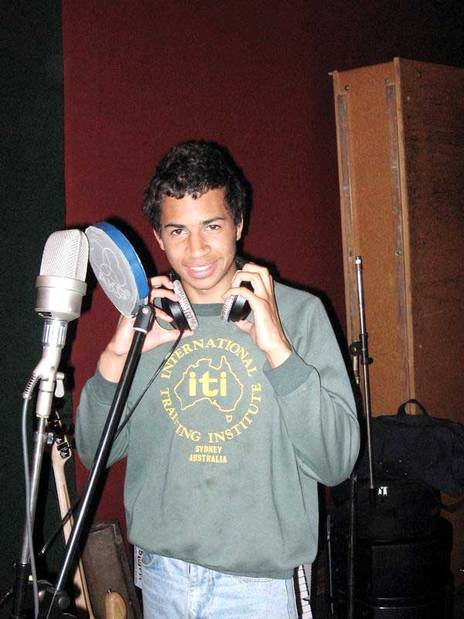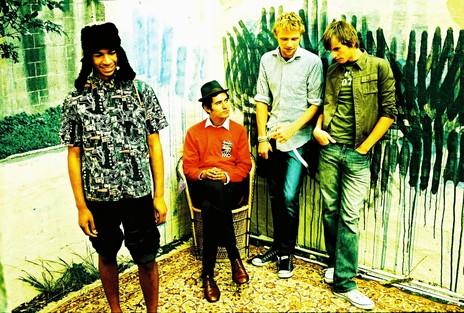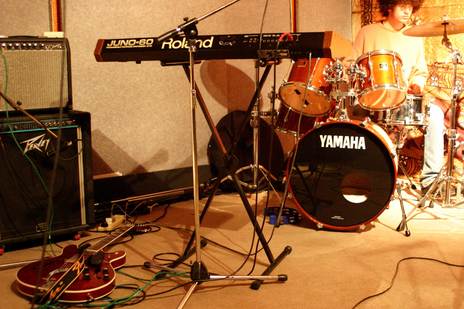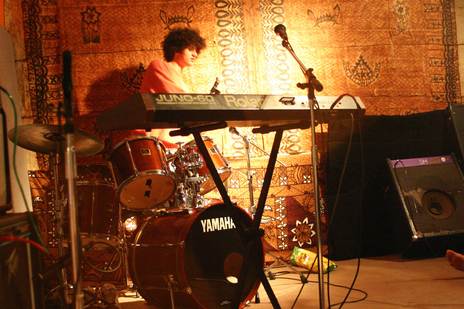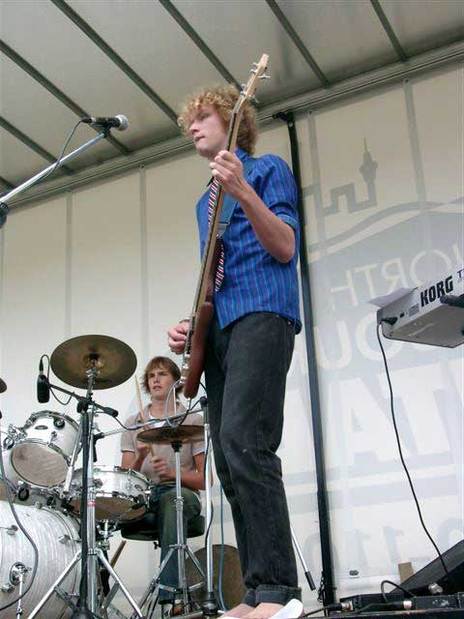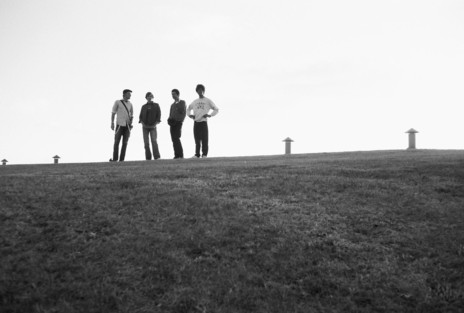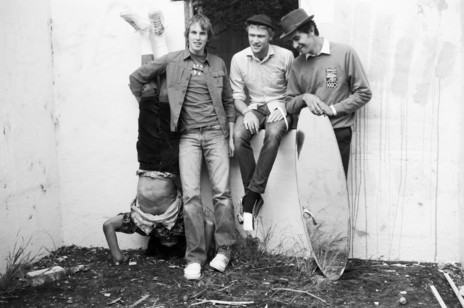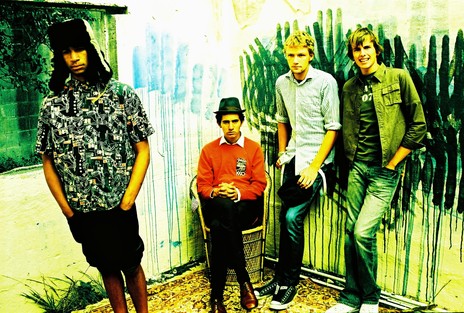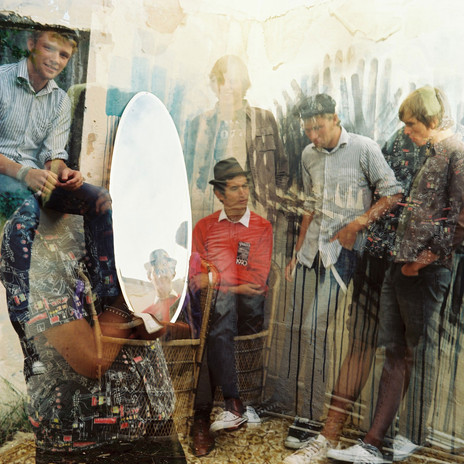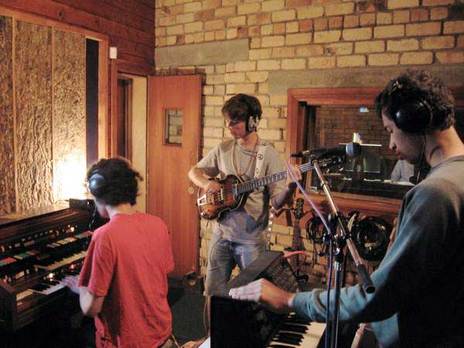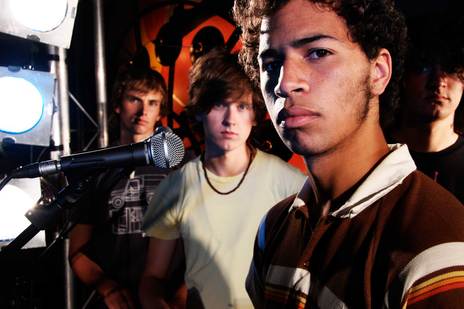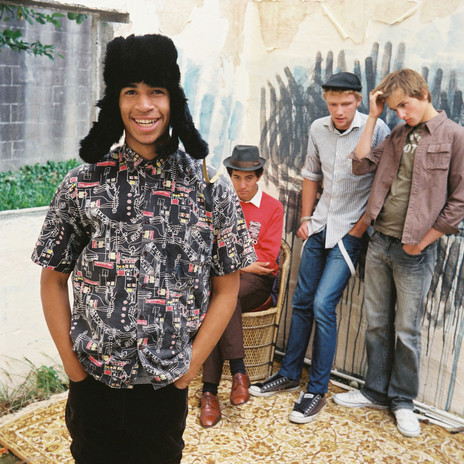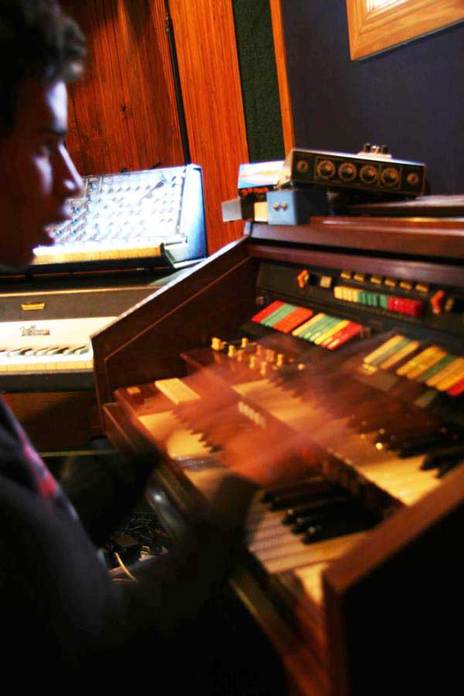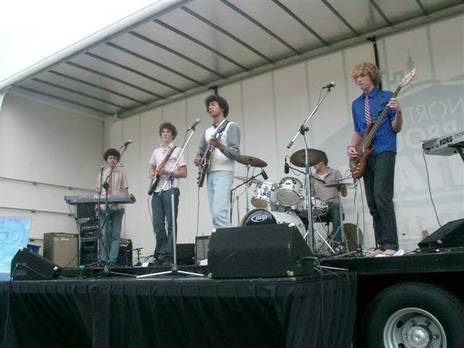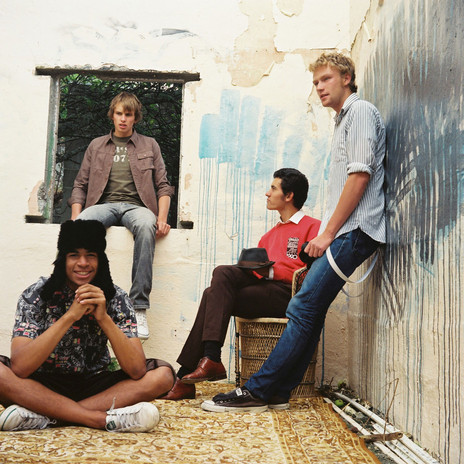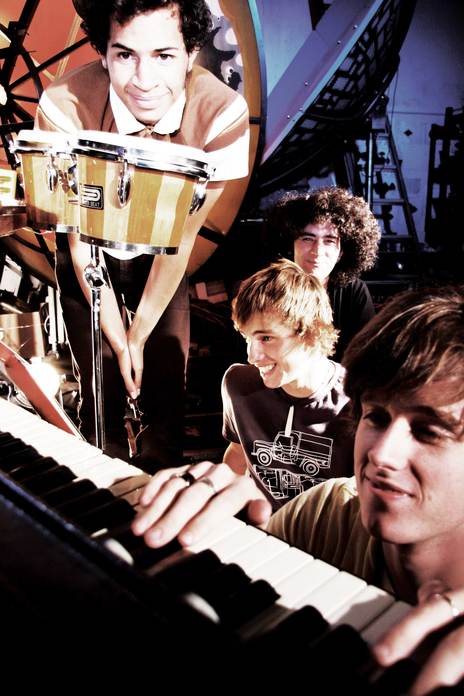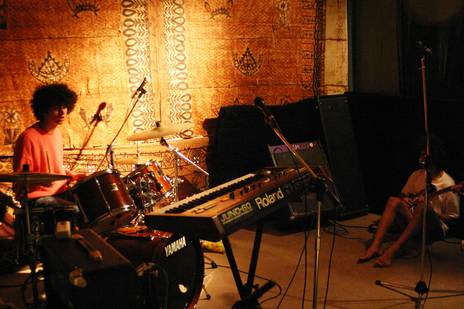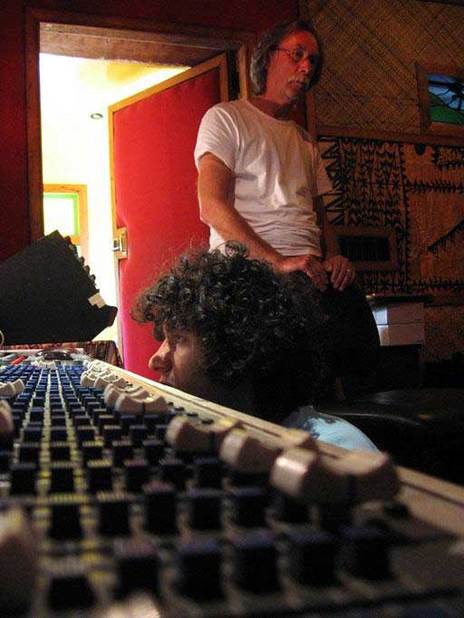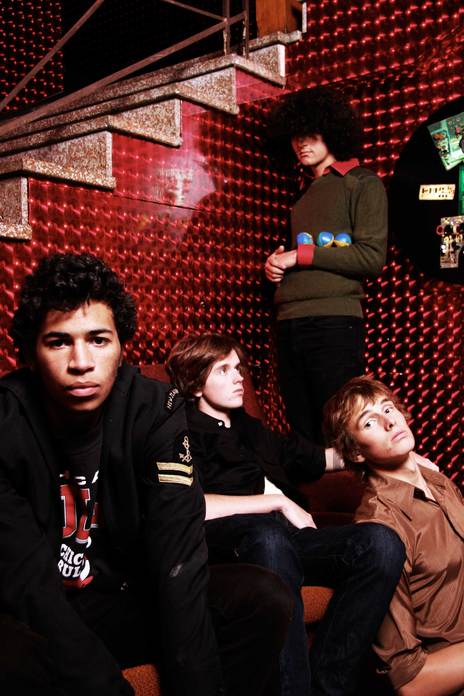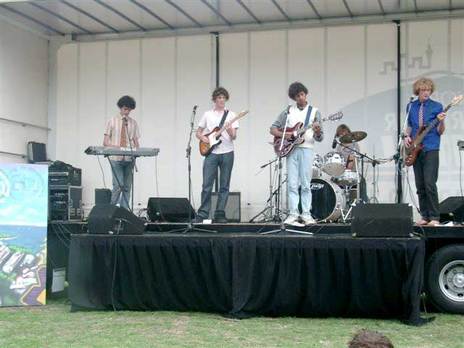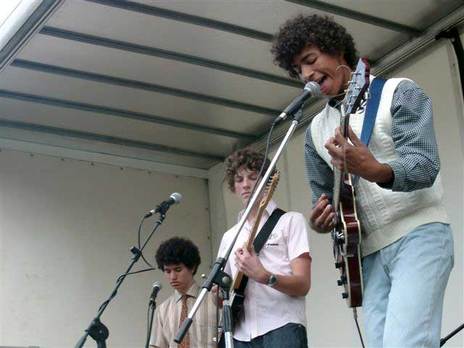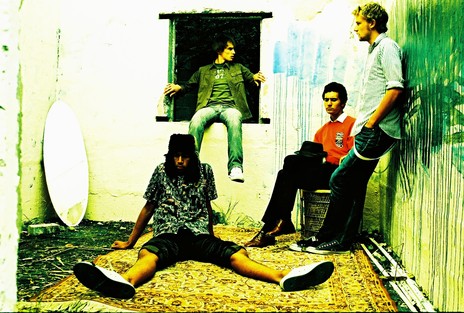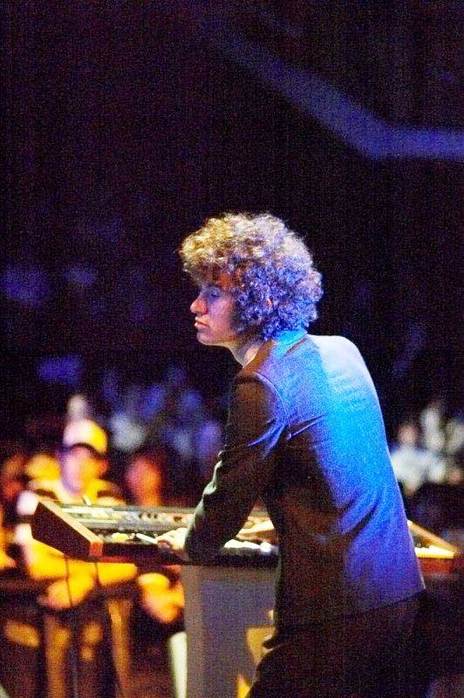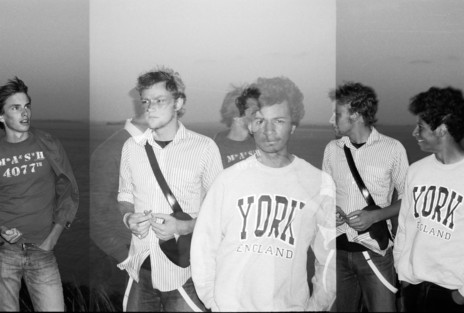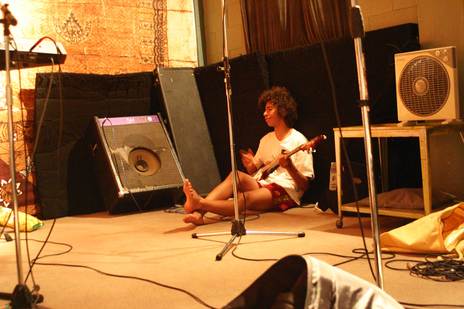“We’d been watching them and it seemed pretty cool to be in a band … that’s where we got the idea from,” Haddon Smith says of watching The Checks’ success.
Haddon, along with Jaisi Sheehan, Rob Fenton, Toby McLennan, and Calum Gunn formed The Electric Confectionaires in early 2005. Jaisi had songs already written and demoed; a self taught endeavour he took to in his bedroom.
“Jaisi’s demos were a bit of a rumour,” says Haddon. “Songs that people were talking about at school, people would ask him for them, and he’d burn them a copy.” The demos gained a reputation, and as Smith puts it, rightly so. “I find them mindblowing even when I listen to them now.”
Record companies were already knocking before the band had properly formed.
Having a collection of songs from the outset meant things could move quickly for the band, and with the 2005 Rockquest as a beacon, they gained momentum quickly. So much so that record companies were already knocking before the band had properly formed. Malcolm Black (formerly of Netherworld Dancing Toys) was the A&R man at Sony Music at the time, and somehow Jaisi’s demos found their way into his hands. “Malcolm was driving to school in his Porsche and picking up Jaisi,” says Haddon. “The band would’ve only been a month old.”
Though Haddon remembers the deal was focused on Jaisi rather than the band, Jaisi preferred the group dynamic, both musically and in a social sense. Haddon remembers a conversation between Jaisi and Kimbra Johnson (who would go on to drop the Johnson and take to the pop world in her own way as Kimbra) about the difficulties of being lonely as a pop artist.
“I think it was a good thing. He liked the band and we were all in awe of him.”
As an outfit, the group slipped quickly into a cohesive unit, driven by the distinctive sounds of Jaisi’s songs, paired with a sound that wore its 60s influence on its sleeve.
“The band’s sound was pretty highly influenced by Jaisi,” says Haddon. “We brought musicianship and performance to the band, but in terms of musical style, even though we all loved that 60s style, it was Jaisi’s songwriting and influence that gave us that sound.”
Before the end of Rockquest second guitarist Toby had left, and the remaining four went on to win the competition in late 2005, with the exceptionally catchy ‘All My Love’ at the vanguard.
Off the back of the win, they signed with Lorraine Barry of Lorraine Barry Management, a Rockquest judge, and began to play as often as possible, at outdoor festivals and with local guitar acts such as The Tutts and Motocade. “It was a magical time,” remembers Haddon. Between the constant shows, the band began recording demos for their first album.
The band signed a deal with Sony BMG, a major label success for a young band and a deal that gave them the ability to take their time with the recording.
The demo sessions for the album took place in late 2006 at The Bus with Rikki Morris. Rikki remembers the session going particularly well. “I still reckon those album demos are some of the best recordings I ever did down at The Bus ... Sony gave us a decent budget and we spent three weeks just doing whatever we wanted.”
“Jaisi Sheehan is a total genius. Haddon was the diplomat. His attention to detail was top notch. Great songs, clever bastards, brilliant musicians ... and all tremendous human beings!”
As rosy as everyone remembers the time, signs of divergent opinions on the direction of the band were beginning to appear. Sony had a commercial intent, and Jaisi didn’t respond well to outside influence on his music.
“I DO also remember feeling a bit of pressure from Sony to get Jaisi 'singing properly',” remembers Rikki. “They partially succeeded [when they ended up recording the actual album] but I could tell Jaisi wasn’t comfortable with it ... he is one of those artists who will NOT be told what he should or should not do.”
Three or four songs from The Bus sessions didn’t make it on the album. As Smith puts it, they were the “songs that were a bit too jokey for Sony. Songs like ‘I Wish I Was a Chimpanzee’ which in retrospect .... who knows.”
Sweet Tooth was eventually recorded with Murray Grindlay at Montage Studios in Grey Lynn.
Sweet Tooth was eventually recorded with Murray Grindlay at Montage Studios in Grey Lynn. By this stage, Calum had left the band, replaced by Hamish Bode, an old Takapuna Grammar boy who had played in jazz bands at school with the others. The record, though more commercially directed, kept true to the unique sound of the band, with an emphasis on layered harmonies, twanging guitar tones and 60s organ sounds.
“We all really enjoyed recording the album.” Says Haddon. “However, I don’t think it’s the album Jaisi would’ve made if he’d had his way … he always wanted to do his newest material.”
By the time the band was recording, it was late 2006. The band had formed in early 2005, and some of the songs they were recording had been written before then. They were old news, especially to a young songwriter, for whom a year can be a lifetime. Some had been recorded twice already, first as early demos, and then again at The Bus. To record them a third time was frustrating for Jaisi, who felt his new material was better and deserved the recording time.
As Haddon puts it: “The album was recorded about two years after Jaisi wrote the majority of the songs, and so by the time it’s released as a ‘new’ album, those songs are actually three or four years old, and for Jaisi, he was just like, 'fuck, these songs! I’ve got way better music now!' ”
“After we had recorded the album, we all felt that he would purposely play the songs badly because he would resent having to play them.”
Despite the tension amongst the band, particularly around playing well live, the band booked high profile slots at the 2006 Big Day Out, New Zealand Fashion Week in the same year, and support slots with Evermore and Thirsty Merc.
2007 saw singles ‘Late Night Shopping Spree’ and ‘Sweet Tooth’ released in May and September respectively, before the album was released in November. It was well received, with NZ Herald's Time Out calling the band "one to watch".
2008 was a slower year for the band, and by the end of the year Bode left. After a period of not playing, the band recruited Jesse Sheehan in the middle of 2009. The arrangement was unorthodox, as Jesse both lived in Wellington and was still at school, so he would fly up to Auckland every weekend for practice. Jesse played second guitar, and he and Jaisi shared lead duties.
The band was booked for Big Day Out and Rhythm & Vines festival in 2009, and continued to draw crowds at their performances, but within the band, it began to feel like the collective energy was dissipating.
In the same year ‘Piece of My Heart,’ the third single off Sweet Tooth, was used as the theme song for Go Girls, a prime time drama set on Auckland's North Shore. However, the writing was already on the wall, and The Electric Confectionaires played their last show on January 3, 2010, at the Coro Music Festival.
In a prophetic way, the band’s name suggested not only an energy and uniqueness that was invigorating, but also a temporal flash. Like a sugar hit from a sweet, the band’s time together was a rush of promise and fun.
